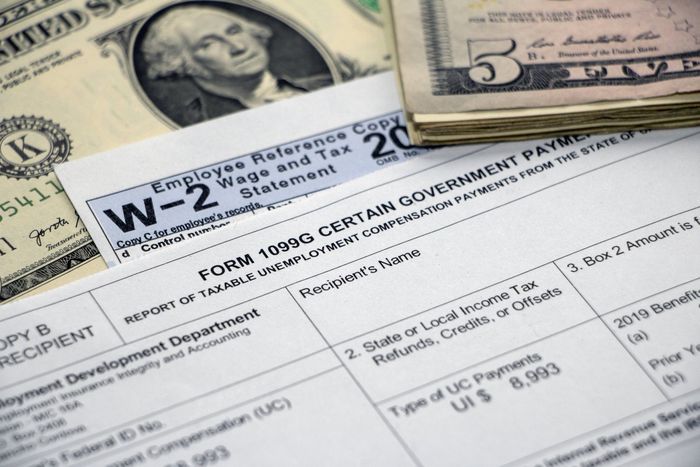Bar Number: 0037087
Call Us Today!
Trusted Family Law Attorney
Trusted Family Law Attorney
When your family issues require legal counsel, we provide the sensitivity you want and the tough advocacy you need. Mary Ann Patti, LLC. can help families resolve contentious issues through mediation and, when necessary, we take it to court. When you contact us, you receive a prompt response to all your questions and concerns.
Divorce
If your marriage is coming to an end, Mary Ann Patti can help provide you with guidance and counsel in a cost-effective way. We’ll work with you from start to finish, maintaining open and clear communication so you’re always kept up to date on your divorce proceedings. Our attorneys will also work to provide you with workable divorce solutions.
Divorce Settlements Include:
- Real Estate Property
- Personal Property
- Child Support
- Spousal Support & Alimony
- And any other issue regarding divorce and divorce proceedings
Alimony
When a couple gets divorced, alimony or spousal support can be ordered for one spouse. Alimony can help supplement an income. There are a few factors to understand about alimony. Age, length of marriage, financial resources and the income-earning capacity of each spouse are all taken into consideration.
Types/Length of Marriages:
- Short Term Marriage – a marriage lasting less than seven (7) years.
- Moderate Term Marriage – a marriage lasting more than seven years but less than seventeen (17) years
- Long Term Marriage – a marriage lasting more than seventeen (17) years
Types of Alimony
Rehabilitative Alimony
- This type of alimony is usually awarded for a limited time. It is used to supplement the redevelopment of skills for a spouse. Usually, this type is paid semimonthly or monthly.
Bridge-the-Gap-Alimony
- Divorce can be particularly hard to adjust to. When it’s time to transition, it can be harder for one party over the other. That’s why bridge-the-gap alimony was created. It is for helping the spouse by necessities such as living expenses and a car. You can pay this as a lump sum or over a short period of time.
Permanent Alimony
- Permanent alimony will be paid monthly or semimonthly. It only ends when the payee spouse remarries or dies.
Durable Alimony
- Sometimes the court will determine that alimony only needs to be paid for a specific amount of time. This can be paid monthly or semimonthly. For more details on durational alimony, contact our attorneys.
Lump Sum Alimony
- In some cases, you will be paid alimony in one lump sum of either property or money. To find out more, contact Mary Ann Patti, LLC.
Mediation
Receive confidential mediation services which will help you and your divorcing spouse identify and address all issues so that you can develop a mutually acceptable agreement. Over 90% of all divorces in Florida are eventually resolved in mediation. When you are facing a divorce, you can use a mediator who can help you both settle all issues quickly and inexpensively.
Mediation can Help Determine:
- Financial Issues
- Alimony
- Asset & Liability Division
- Mortgage Payments
- Debt Responsibility
- Retirement Benefits
- Parenting Plans
Judgement Modifications
In order to fine a modification of Alimony in the state of Florida, you must meet certain requirements called a "Substantial Change in Circumstances". The Law Office of Mary Ann Patti can help you determine if you qualify for a modification, and help you through the legal process.
Substantial Change In Circumstances Includes:
- Changes or Decline in Health
- Employment Status
- Financial Gifts
- Change in Pay
- Inheritance
- Lottery or other Gambling Wins
- Medial Insurance Coverage Change
- Unforeseen Inability to Pay
- Retirement
- Voluntary Changes
- Marital Status
- Evidence of Fraud
Pre-Nuptial & Post-Nuptial Agreements
Pre-nuptial and post-nuptial agreements are an effective way for couples to understand their individual financial statuses and to plan for the future. These contracts can delineate how marital property and money is distributed and may also make provisions about spousal support. Some prenuptial and postnuptial agreements contain provisions regarding child support and custody, but courts will only enforce these provisions if doing so is in the best interests of a child.
Prenuptial agreements often save couples thousands of dollars in legal fees and greatly reduce the amount of time it takes to obtain a divorce. With full and fair disclosure there are no surprises, and each party is aware of his or her rights and obligations. Many people mistakenly believe that prenuptial agreements are reserved for wealthy individuals. However, Mary Ann Patti can assist clients of all income levels and those with both large and small estates.
Pre-Nuptial Agreements Should Include:
- Catalogue or list of each person's personal property, i.e. jewelry, art, china, and other valuables.
- List of all non-physical assets such as trademarks, intellectual property, businesses, and more.
- Any financial assets brought into the marriage by both parties, including stocks, investments, retirement benefits, savings accounts, and more.
- Any sentimental or special family heirlooms.
Post-Nuptial Agreements Should Include:
- Any property or assets that have been accumulated by the couple after marriage. This should include any specific property that one party feels belongs to him or her, i.e. a new business.
- Valuable gifts that the couple received after the marriage, i.e. art, furniture, valuable electronics.
- Any items purchased with money not from a joint account.
Name Changes
While most people never think about changing their legal name, there are certain situations that arise where adults may wish to do so. While the most common reason adults wish to change their legal name is marriage or divorce, it is not the only reason. Some people want to legally change their name for safety reasons, career advancement, gender transition or their own religious beliefs.
There are several requirements you should be aware of when filing a petition for a name change in Florida, which include the following:
- Residency: You must live in Florida and meet the legal definition of a resident
- Age: You must be at least 18 years old to file a petition as an adult
- Fees: The clerk will collect a fee that you will need to pay in order to file your petition
- Notice: If an interested party exists, you must either gain the consent of that party or publish a formal notice that you intend to change your name.
After a judge approves your petition, you will need to independently take steps to change your name in other areas. This includes getting a new driver’s license, passport and social security card. All agencies will require proof of court approval to obtain identification cards with your new name.
Domestic Violence Injunctions
Whether you are the victim of domestic violence or have been served with an injunction based on allegations of domestic violence, let Mary Ann Patti advocate for you. We have experience in prosecuting and defending domestic violence cases, and we understand how emotionally charged the issues can become. In addition, we are here to protect victims and to see that those who are charged get the representation they need.
Child Custody
Florida state courts no longer award primary residential custody of the child to either parent or visitation time to the non-custodial parent. The term “visitation” has been replaced by “time sharing” and “parenting plan.”
A parenting plan must address time-sharing issues, including weekly, holiday, and school vacation schedules. It must also take decision-making into account, which includes day-to-day care and emergency matters. Lastly, the parenting plan must describe the ground rules regarding communication between the parents.
The Court will Consider the Following when establishing a parenting plan:
- The ability of both parents to maintain a close emotional relationship with the child
- Custody and visitation that is best for the child
- Child support
- The ability of both patents to meet the specific needs of their child
- The location of both parents
- The ability of both parents to provide a stable and safe home environment for the child
- The overall health, (mental, physical and emotional) of both parent's
- Any evidence or accusations of abuse or neglect
- Educational and developmental needs of the child
- Any other facts or evidence put before the court and having any impact on the child
Paternity
Paternity establishes who the legal father of a child is. Often, paternity issues deal with child support, but more importantly can be instrumental in custody, child support, health care and adoption cases.
Voluntarily Establishing Paternity
If there is no argument surrounding the paternity of the child, paternity can be established voluntarily and easily. Once paternity is legally established, the father can begin requesting custody and may be ordered to pay child support.
DNA Testing
If paternity is called into question, or is contested by one partner, the court may compel a DNA test to establish legal paternity. DNA testing is only required if the child's paternity is in question.
Child Support
In Florida, child support is decided based on the child support guidelines that take the income of both parents into account. The Law Office of Mary Ann Patti can help you determine the correct amount of child support you should be paying, or receiving.
Proof In Child Support Cases:
- The salary of both parents
- Any bonuses or additional sources of income
- All business income (from sources such as self-employment, partnerships, corporations and independent contracts)
- Disability, unemployment and workers' compensation benefits
- Pension or retirement
- Social Security
- Spousal support, if any
- Investment dividends and interest
- Income from rental properties
- Income from trusts, royalties or estates
Visitation
Biological fathers have visitation rights even if they have never been married to the mother, provided they can prove paternity and that it would be in the child’s best interests. The quickest and most cost-effective method of determining visitation and parenting time rights is through a Settlement Agreement.
If each parent can agree on matters of child custody and parental access, the court will usually accept this agreement without intervening and establishing it as a court order. In the event that parents cannot reach an agreement about visitation, the court has full discretion to examine the best interests of the child and develop a schedule.
Adoption
The offices of Mary Ann Patti, LLC., can represent all types of potential parents looking to adopt a child, from a stepparent, a relative, or close family friend or contact to a child. We can work with you so that the process is done efficiently and is compliant to State of Florida guidelines for adoption, along with the Interstate Compact for the Placement of Children (ICPC).
The Florida Bar tells us that “An adoption establishes a legal parent-child relationship between the adoptee and the adoptive parents. This legal relationship is identical to the legal biological parent-child relationship. Florida law authorizes adoptions for all persons, minors and adults.”
Requirements & Consent needed for adoption
- Consent of the biological mother
- Consent of the biological father IF
- The child was conceived or born during a marriage to the illogical mother
- The child has been adopted by the father
- The court has appointed him as the child's father
- The father has filed for paternity
- (If unmarried) the Father has acknowledged in written and signed in the presence of a witness that he is the father of the child.
- The child is over 12 years of age
- Any person granted custody of the child by the court
- The court with jurisdiction over the case, if the person with physical custody of the child is unable to consent to the adoption
What Clients Are Saying
★★★★★

Slide title
"She's amazing. she helped me a long time ago. she makes u feel like ur her only client and goes all out to do whats right."
- Kim S.
Button
Slide title
"I have been through many attorneys in Pensacola. Mary Ann is head and shoulders above.... she cares, she's compassionate and she knows what she's doing.... she's not one of the good 'ol boys in Pensacola. If you want someone who actually cares about you and your case, and not about milking your savings, she's for you."
- Michael L.
Button
Slide title
"Mrs.Patti is a great lawyer! She is caring and compassionate. She will fight hard for her client."
- Danielle P.
Button
Slide title
"Great attorney. Caring and compassionate to her clients. Tough in court. Want a good family attorney call Ms. Patti."
- Paula M.
Button

Slide title
"She's amazing. she helped me a long time ago. she makes u feel like ur her only client and goes all out to do whats right."
- Kim S.
Button
Slide title
"I have been through many attorneys in Pensacola. Mary Ann is head and shoulders above.... she cares, she's compassionate and she knows what she's doing.... she's not one of the good 'ol boys in Pensacola. If you want someone who actually cares about you and your case, and not about milking your savings, she's for you."
- Michael L.
Button
Slide title
"Mrs.Patti is a great lawyer! She is caring and compassionate. She will fight hard for her client."
- Danielle P.
Button
Slide title
"Great attorney. Caring and compassionate to her clients. Tough in court. Want a good family attorney call Ms. Patti."
- Paula M.
Button
Leave Us A Review
Bar Number: 0037087






Browse Our Website
Contact Information
Address:
2005 West Garden Street Pensacola, Florida 32502
Phone: (850)437-3700
Email: map@mpattilaw.com
Bar Number: 0037087
Hours of Operation
- Mon - Thu
- -
- Friday
- -
- Sat - Sun
- Closed



















